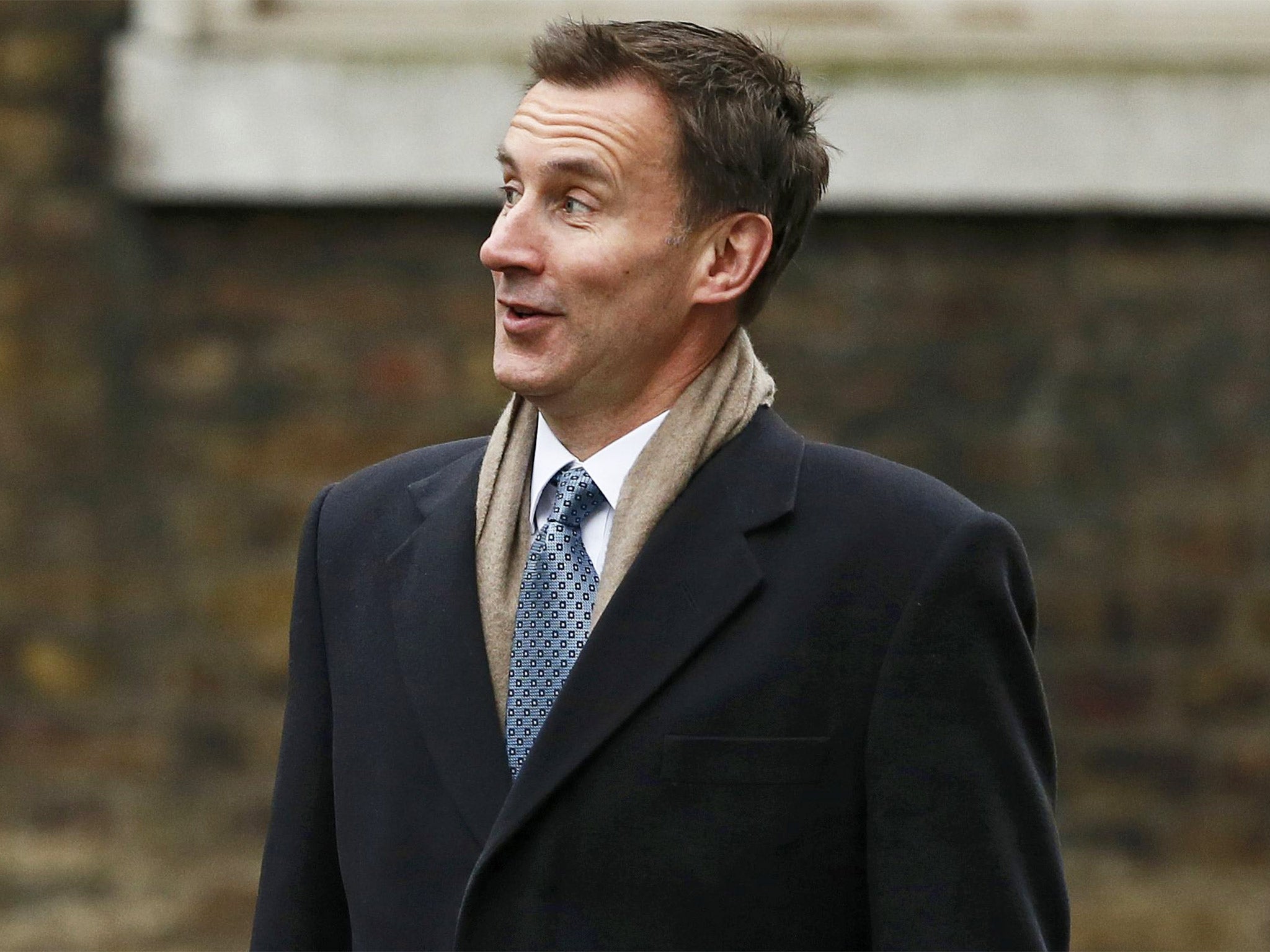From the junior doctors' strike to the Port Talbot steel crisis, the government must remember how to strike a deal
Neither Jeremy Hunt nor Sajid Javid appear prepared for the scale of the crises unfolding on their watch, or in possession of the necessary instinct for compromise

It was often said six years ago, when the Coalition government was formed, that it would be an embodiment of that patron saint of modern conservatives, Edmund Burke. Certainly, as a two-party administration, it had one of Burke’s more practical maxims written in its DNA: “All government…is founded on compromise and barter”.
In other words, to be a good government, you have to be able to make good deals. With their Liberal partner jettisoned, some members of the Conservative cabinet seem have forgotten that. On two fronts, with the future of two British institutions at stake, urgent deal-making is needed.
Britain’s steel industry is facing calamity if a buyer is not found to breathe new life into its furnaces and factories; and the NHS, already under financial strain, could suffer a mortal blow if a generation of junior doctors depart in despair over their new contracts. Neither of the two ministers responsible – Sajid Javid, the Business Secretary, for steel, and Jeremy Hunt, the Health Secretary, for the NHS – has shown themselves to be prepared for the scale of the crisis unfolding on their watch, nor in possession of the instinct for compromise that marks out true problem-solvers from mere seat-fillers.
Mr Javid knew as well as anyone how precarious was the future of the British steel industry, well before the board of Tata decided, in Mumbai last week, to sell its UK business. Yet he decided that now would be as good a time as any to fly to Australia on official business, and to enjoy a short break while he was at it. Having cut short his trip, he did, belatedly, make an appearance in Mumbai yesterday.
A prospective buyer has emerged in the shape of Sanjeev Gupta, the founder of the Liberty House commodities group. He wants some drastic concessions from Government, so reaching a good deal may take time.
Mr Javid could buy himself some with a bold move – push for a temporary nationalisation of the Tata plants. It would go against the ideological grain of this government, but then again, sometimes the person we have to compromise with to reach a solution is not some pushy buyer, but ourselves.
As for Mr Hunt and the junior doctors, both sides have accused the other of lacking compromise. In fairness to the Health Secretary, he has in the past few months made concessions to improve what was a truly appalling contract offer to junior doctors last summer. But he was equally guilty of failing to predict how furiously a highly-motivated, highly-intelligent workforce would react to a contract offer that, when all the details are digested, essentially asks it to work more for the same amount of money.
Junior doctors quickly realised that this contract, with its demands for more weekend working, but without a funding increase to back it up, was less about improving patient care as it was about cutting the cost of the NHS pay bill in the long-term. The British Medical Association deserves some of the blame for accepting cost-neutrality as the basis for negotiations in the first place, meaning that any possible deal would never wash with its members.
But the potential consequences of this dispute are now so grave that blame games need to be abandoned. A generation of junior doctors is losing confidence in the Government’s commitment to a safe, properly funded NHS. Rather than risk harming patients on under-staffed wards, they will vote with their feet.
If this is to be avoided, Mr Hunt needs to swallow his pride, drop his threat to impose the contract, go to the Treasury, and say more money is needed. Then, we will see whether George Osborne has also learned the gift of compromise.
Join our commenting forum
Join thought-provoking conversations, follow other Independent readers and see their replies
Comments